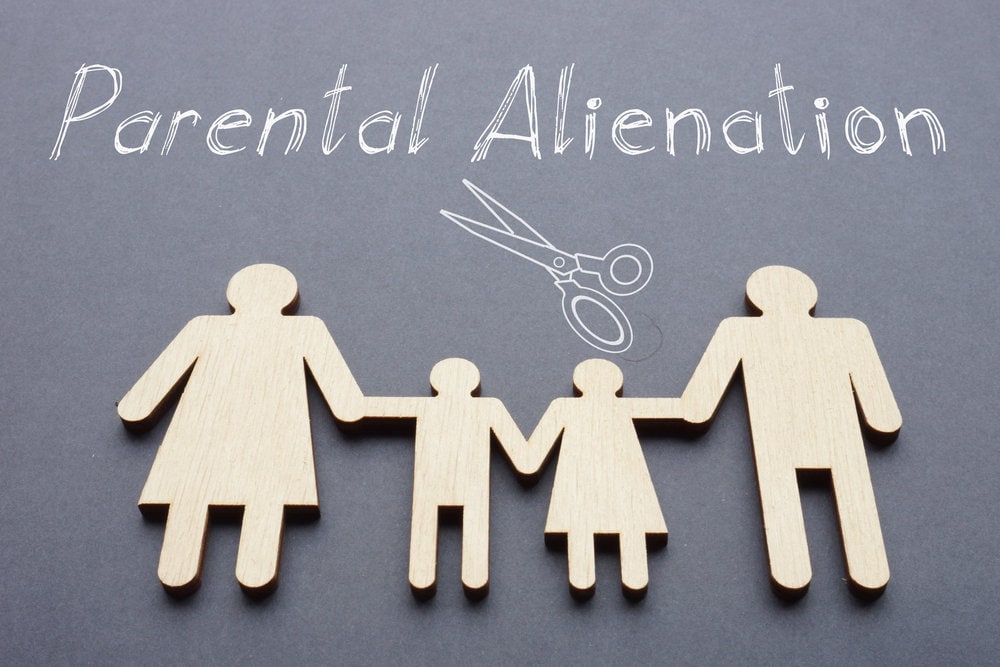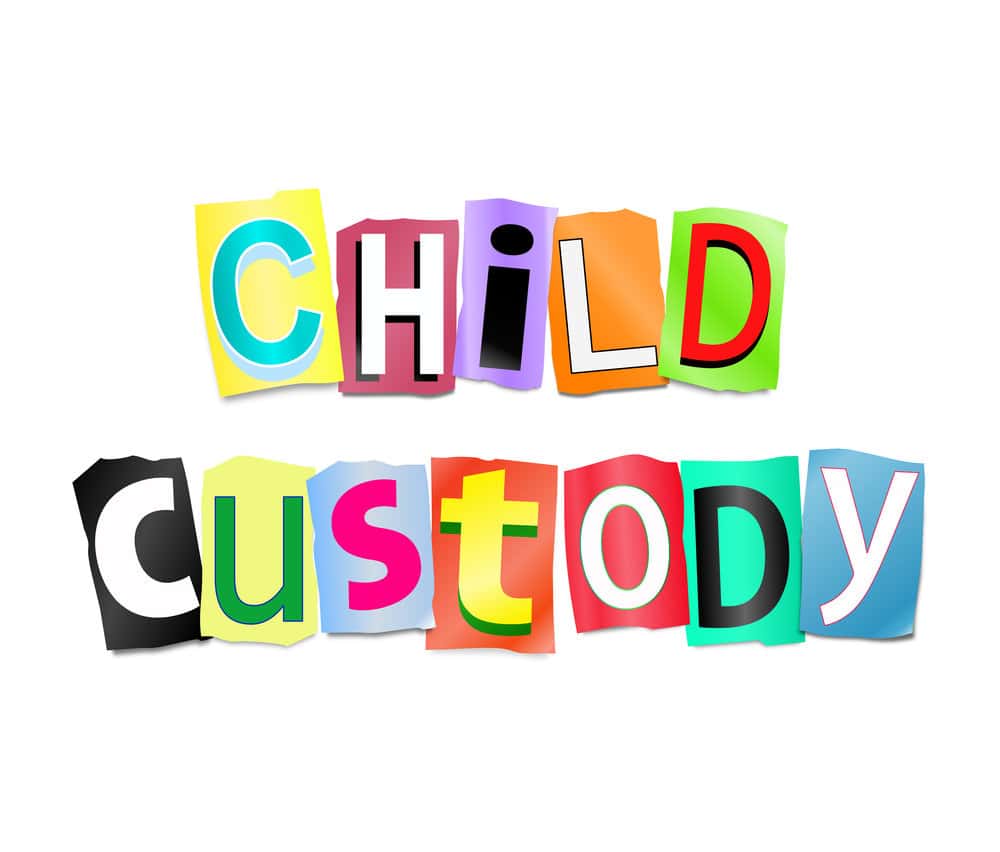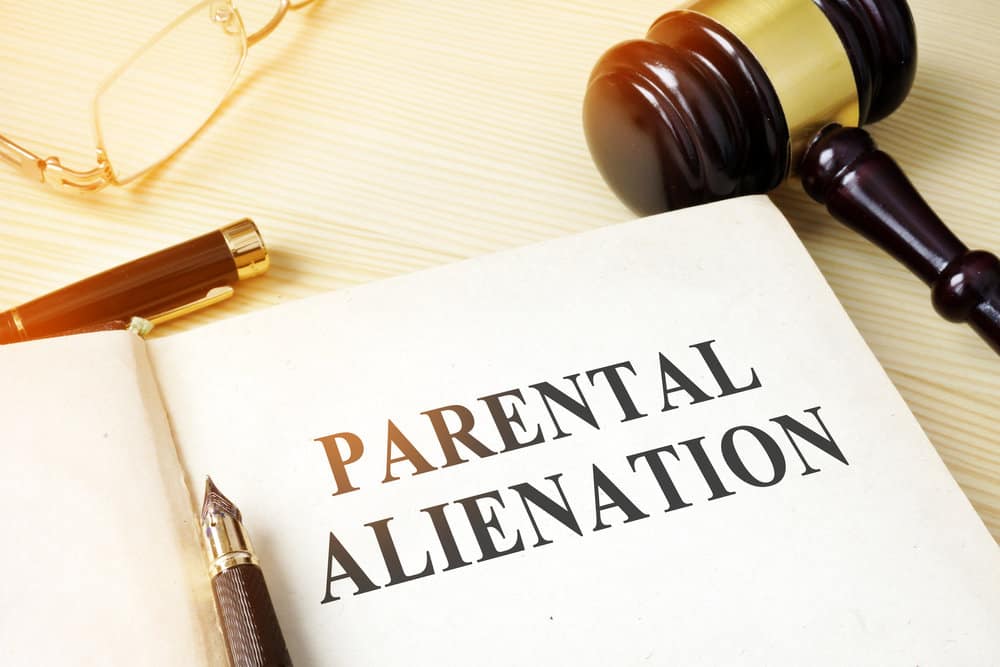Parental alienation is a complex and contentious issue in certain custody disputes. This phenomenon occurs when one parent manipulates a child’s emotions and opinions, causing them to reject and fear the other parent without cause. As co-parenting becomes increasingly recognized as critically important to a child’s well-being, parental alienation has garnered increased attention, potentially devastatingly affecting families and children.
In recent years, there has been growing concern over parental alienation’s role in custody battles and the potential consequences for the afflicted parent. While both parents need to co-parent amicably, one may begin to question the possible repercussions of engaging in parental alienation. Moreover, false accusations of alienation could lead to unjust outcomes in court, adding another layer of complexity to the issue. The legal implications of parental alienation in custody battles are intricately entwined with multiple factors and can have lasting consequences for all involved.
Key Takeaways
- Parental alienation can significantly impact custody battles and affect a child’s well-being.
- False parental alienation accusations can complicate legal proceedings and result in unfair outcomes.
- Addressing the issue requires awareness, cooperation, and effective legal strategies for all parties involved.

Understanding Parental Alienation
Parental alienation is when one parent manipulates and influences their child’s relationship with the other parent. This can result in the child developing negative feelings or rejecting the targeted parent. Recognizing the signs of parental alienation and understanding its effects on the child and the targeted parent is crucial.
Signs of Parental Alienation
Detecting parental alienation can be challenging as it often manifests subtly. However, some telltale signs include:
- Badmouthing: The alienating parent consistently speaks ill of the targeted parent in front of the child.
- Limiting contact: The alienating parent attempts to restrict or interfere with the child’s communication and time spent with the targeted parent.
- Excluding the targeted parent: The alienating parent excludes the targeted parent from important decisions, events, or activities involving the child.
- False accusations: The alienating parent might fabricate or exaggerate claims of abuse or neglect by the targeted parent.
- Child’s behavior: Sudden changes in the child’s desire to spend time with the targeted parent and animosity or indifference toward them.
Effects of Parental Alienation
Parental alienation can have lasting effects on both the child and the targeted parent, including:
- Emotional damage: The child may experience guilt, confusion, and low self-esteem. These feelings can create lifelong emotional scars.
- Damaged relationships: Parental alienation can lead to a broken relationship between the child and the targeted parent and strained relationships with other family members.
- Impaired development: The disrupted emotional bond may hinder the child’s social, emotional, and cognitive development.
- Stress on the targeted parent: The targeted parent may experience emotional pain, frustration, and helplessness, further impacting their well-being.
It’s crucial for everyone involved – parents, family members, and professionals – to recognize and address parental alienation in its early stages. Implementing appropriate measures and seeking professional help can help mitigate the negative consequences and restore a healthy parent-child relationship.

Losing Custody Due to Parental Alienation
Parental alienation is a serious matter that can significantly impact a child’s well-being and relationship with both parents. In many cases, this behavior can lead to one parent losing custody of their children.
Reasons to Lose Custody
There are several reasons courts may decide that a parent should lose custody due to parental alienation. These factors may include:
- Making false allegations of abuse or neglect against the other parent to manipulate the child or court proceedings
- Intentionally undermining the child’s relationship with the other parent through constant criticism and negativity
- Interfering with visitation rights and communication between the child and the other parent
- Coaching the child to refuse visitation or make false claims against the other parent
These actions can ultimately sever ties between the child and the alienated parent, leading to long-lasting psychological and emotional consequences.
Custody Proceedings
When a court is faced with allegations of parental alienation in a custody battle, they must weigh the evidence and consider the child’s best interests. A family law attorney can help navigate the complex legal landscape and ensure all relevant information is presented during the proceedings.
Judges will examine several aspects of the case, including:
- The nature and extent of the alienating behavior
- The impact of alienation on the child’s mental health and development
- The willingness and ability of both parents to cooperate and prioritize the child’s well-being
- The child’s preference, if they are of an appropriate age and maturity to express such a preference
When parental alienation harms the child, the court may decide to modify custody arrangements or place the child with the alienated parent to protect their welfare.
In conclusion, losing custody due to parental alienation can be a real outcome in severe cases. Parents who believe they are being alienated from their child should consult with a family law attorney to help protect their rights and their child’s best interests.
Importance of Co-Parenting
Co-parenting plays a crucial role in the well-being of children after a divorce or separation. Establishing a healthy relationship between both parents serves the child’s best interests and fosters a sense of stability in their lives.
Co-Parenting Strategies
To successfully co-parent, it’s essential to prioritize your child’s needs and keep their best interests at the forefront. Here are some strategies that can help:
- Effective communication: Keep the lines of communication open and maintain a respectful tone while discussing your child’s upbringing, schedules, and needs.
- Consistent rules and routines: Establishing similar rules, expectations, and daily routines in both households will make it easier for your child to adjust to the new family dynamics.
- Supporting each other as parents: Recognize that the other parent has valuable contributions to make and encourage your child to maintain a strong bond with them.
- Flexible decision-making: Be willing to compromise and work together to find solutions that best serve your child.
Reunification Therapy
In some cases, reunification therapy may be necessary when there has been a significant breakdown in the relationship between a parent and child. This therapeutic approach aims to repair the bond between the estranged parent and child, addressing the emotional and psychological challenges they may be facing.
It’s essential to have a qualified therapist specializing in reunification therapy to guide the process. They’ll help the parent and child to:
- Explore and resolve the issues that led to the estrangement
- Rebuild trust and foster open communication
- Create a safe space for both parties to express their feelings and work through conflicts
Ultimately, fostering a healthy co-parenting relationship is beneficial for all parties involved. By prioritizing your children’s well-being and working together to meet their needs, you provide them with a strong foundation for emotional and psychological growth.
Guarding Against False Accusations
Dealing with False Allegations
Ah, false accusations – a nightmare that can strike anybody within a blink of an eye. One moment you’re living your life, and suddenly, you’re accused of something you didn’t do. It’s like walking on a tightrope, balancing between truth and lies. When faced with false allegations of parental alienation, remaining calm and composed is crucial. No one wants to let false claims dictate their life, right?
Gathering tangible evidence and keeping meticulous records becomes your guiding star. Document everything, from emails, texts, and phone records to visitation schedules and interactions with your children. Remember, facts are your shield against these baseless allegations. Don’t hesitate to lean on a trustworthy family law attorney, as they can provide invaluable support and help navigate the complex court system.
Support Systems
During these turbulent times, support systems are like anchors, keeping you grounded and focused. Don’t bottle up your emotions; reach out to your friends and family. Share your thoughts, feelings, and fears with them – you don’t have to face this crisis alone. They’ve got your back and will fight by your side through thick and thin.
It’s essential to seek professional help as well. Whether it’s a therapist, social worker, or counselor, having someone lend an ear and provide guidance can work wonders for your mental well-being. Remember, caring for yourself is just as crucial as proving your innocence.
So, stand tall and firm amidst the storm of false accusations and allegations. You’ve got the truth on your side, a support system, and a skilled attorney, and together you will weather this tempest and emerge more vital than ever.

Legal Strategies in Custody Battles
Regarding custody battles, parental alienation can have significant repercussions on a family. In this section, we explore legal strategies that can be employed by parents facing these issues, focusing on custody modification and enforcing court orders.
Custody Modification
Sometimes, a parent’s best option may be to seek a custody modification. By demonstrating to the court that the other parent has engaged in parental alienation, they can potentially obtain a change in the existing custody arrangement. Such alterations could include switching from joint custody to sole custody or adjusting the visitation schedule to protect the best interests of the child better.
A family law attorney can provide valuable guidance during this process, helping a parent gather evidence of alienation and advocating on their behalf in court. They’ll need to show that the other parent’s actions have caused emotional harm to the child and that a change in custody is necessary for the child’s well-being.
Enforcing Court Orders
Sometimes, a parent’s focus might shift to enforcing existing court orders, especially when the other parent continually disrespects and ignores them. In these instances, the aggrieved party should document all custody agreement violations, such as missed visitation dates or unapproved restrictions on communication.
With the help of a family law attorney, the affected parent can then file a motion to enforce the court order. Legal consequences for the violating parent may include fines, loss of custody, or even jail time for repeated offenses. Handling these matters with care and precision is essential, as emotions can run high and further escalate the situation.
In conclusion, addressing parental alienation within custody battles requires a strategic and well-planned approach. By focusing on custody modification or enforcing court orders, parents can protect their rights and, most importantly, safeguard the emotional well-being of their children. A skilled family law attorney can provide invaluable support during these challenging times.

Effects on Children
Emotional and Psychological Impact
Children exposed to parental alienation can be deeply affected emotionally and psychologically. Their sense of security and self-esteem can be severely compromised. They often feel torn between the two parents they love, which may lead to guilt and confusion. Moreover, they might develop a distorted image of the targeted parent, hindering their ability to form a healthy bond.
The emotional turmoil may also manifest as depression, anxiety, and anger in children. These negative emotions may continue to impact their social interactions and personal relationships even as they transition into adulthood. Recognizing and addressing these issues early, whenever appropriate, is vital to ensure the child’s well-being.
Dealing with Trauma
Handling the trauma arising from parental alienation can be incredibly challenging for children. The psychological abuse and emotional manipulation they experience may result in long-lasting, detrimental effects on their mental health. Prolonged exposure to such mistreatment can lead to complex post-traumatic stress disorder (C-PTSD), characterized by persistent feelings of helplessness and disconnection from others.
Children must receive timely intervention and support to heal from the trauma of parental alienation. This might include therapy with a mental health professional who specializes in family dynamics and who can provide a safe space for the child to express their feelings and begin to rebuild their relationship with both parents. Furthermore, support from social circles, such as extended family, friends, and community organizations, can prove invaluable in the child’s journey toward recovery.
Parental Alienation Syndrome Checklist
This checklist is meant to help identify potential signs of PAS, though it is not exhaustive nor a substitute for professional advice. If you believe your child is being alienated, please consult with a mental health professional or a legal advisor.
1. Campaign of Denigration: The child consistently criticizes or belittles the targeted parent, often using language and expressions beyond their years or not reflecting their personal experiences with the parent.
2. Weak, Absurd, or Frivolous Rationalizations: The child’s reasoning for their criticism or rejection of the targeted parent often lacks substance. Their explanations can be vague, nonsensical, or disproportionate to their negative feelings.
3. Lack of Ambivalence: The child exhibits a stark division between the “good” alienating parent and the “bad” targeted parent, with no ability or willingness to see both the positive and negative traits in each parent.
4. The “Independent Thinker” Phenomenon: The child staunchly maintains that their negative opinion of the targeted parent is entirely their own, even when it’s clear that their views align closely with those of the alienating parent.
5. Reflexive Support for Alienating Parent: The child aligns themselves with the alienating parent in disputes, regardless of the facts or fairness of the situation.
6. Absence of Guilt: The child shows no guilt or remorse over their behavior towards the targeted parent, often justifying their actions based on the parent’s unfounded or exaggerated negative image.
7. Use of “Borrowed Scenarios”: The child’s accounts of incidents or situations involving the targeted parent often mimic the alienating parent’s narratives, suggesting that their perception is significantly influenced or scripted.
8. Spread of Animosity: The child’s animosity toward the targeted parent often extends to that parent’s family and friends, resulting in a broad rejection of a whole network of relationships.
Remember, these signs are potential red flags and should be viewed within the context of the child’s overall behavior and well-being. If you suspect your child may be experiencing PAS, it’s essential to seek professional help. Legal and psychological professionals can provide the necessary support and intervention to protect the child’s relationship with both parents and mitigate the harmful effects of alienation.
Frequently Asked Questions
Can a parent lose custody if they actively turn the child against the other parent?
Absolutely. If a parent engages in behavior that manipulates or turns their child against the other parent, they can lose custody. Family courts prioritize the child’s best interests, and parental alienation is viewed as harmful to the child’s emotional well-being.
What behaviors can result in a parent losing custody due to parental alienation?
Various behaviors could lead to a parent losing custody, such as consistently badmouthing the other parent, limiting contact between the child and the other parent, or manipulating the child into rejecting the other parent. Additionally, creating false allegations of abuse and discouraging communication with the child’s other parent can be considered acts of parental alienation.
What role does a pattern of malicious actions play in a custody case involving parental alienation?
A pattern of malicious actions can be crucial evidence in a custody case involving parental alienation. It demonstrates intent and a clear effort to harm the child’s relationship with the other parent. Family courts will consider a consistent, identifiable pattern as a strong indicator that parental alienation is occurring.
Can a parent who’s the victim of parental alienation file for a modification of child custody?
Indeed, a parent who’s been alienated can file a petition to modify the existing child custody order, provided they have evidence of parental alienation. The court will then review the case and determine if there’s a need for a change in custody arrangements.
How might a family court respond to evidence of parental alienation in a custody case?
Family courts take parental alienation quite seriously. Upon presenting evidence of alienation, the court may order parenting classes, therapy for the child and parents, or supervised visitation for the alienating parent. In extreme cases, the court may even alter the custody arrangement by granting more custody time to the alienated parent or transferring primary custody.
What steps can a parent take to protect their custody rights when faced with parental alienation?
It’s essential to remain proactive in maintaining a strong and positive relationship with the child, document instances of alienation, seek professional help for themselves and the child and reach out to legal counsel. A parent can protect their custody rights and ensure their child’s best interests are upheld by taking such actions.




